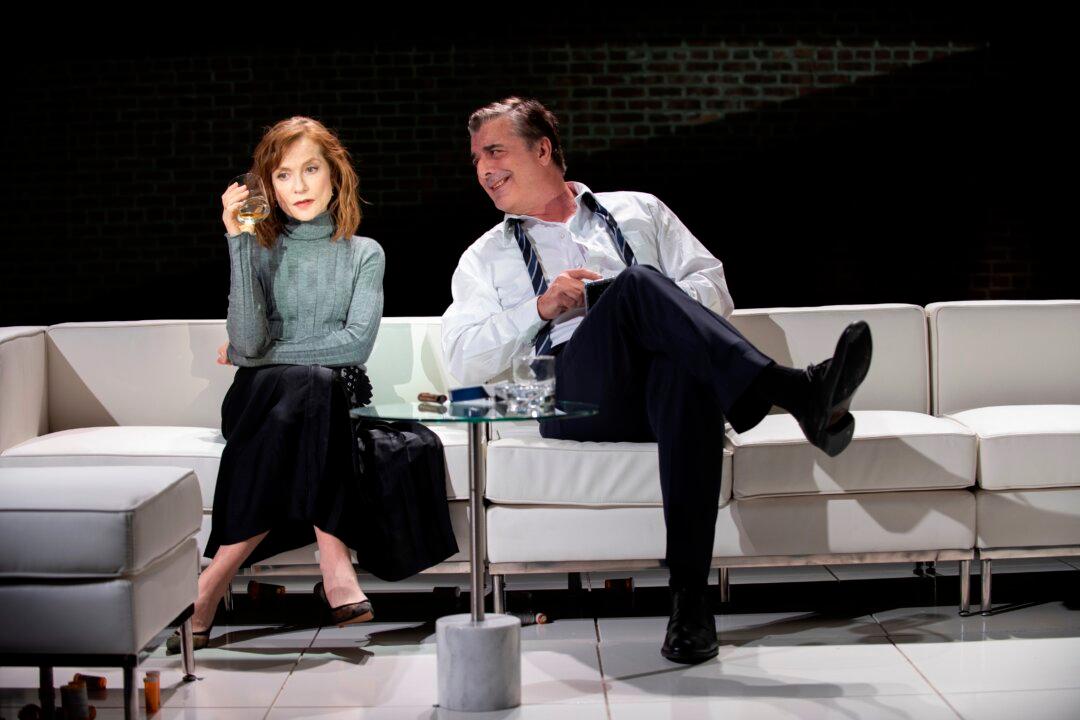NEW YORK—The turmoil of a confused, failing mind is examined in French playwright Florian Zeller’s “The Mother.” Translated by Christopher Hampton and having its U.S. premiere at the Atlantic Theater Company, the work is an attempt to view one woman’s disintegrating psyche from the inside.
Anne (Isabelle Huppert) is a middle-aged woman in an unhappy marriage. Once completely devoted to her two children, she has precious little to do now that they have grown up and moved away. She prefers to stay inside and brood about what she has lost rather than trying to get on with her life.





